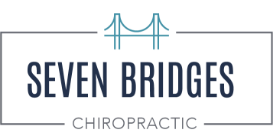The Role of Acupuncture in Migraine and Headache Treatment
Migraines and chronic headaches can be debilitating, affecting daily life, productivity, and overall well-being. While medications and lifestyle changes can help manage symptoms, many people are now turning to acupuncture as a natural, drug-free approach to headache relief.
But does acupuncture really work for migraines and headaches? Scientific research and clinical studies show that acupuncture can effectively reduce the frequency, intensity, and duration of headaches. In this blog, we’ll explore how acupuncture helps with migraines, the science behind it, and what to expect if you’re considering acupuncture as a treatment.
How Acupuncture Helps with Migraines and Headaches
Acupuncture is a traditional Chinese medicine (TCM) practice that involves inserting thin, sterile needles into specific points on the body to promote healing and restore balance. While ancient medicine explains this as unblocking the flow of Qi (energy) in the body, modern science has identified specific biological mechanisms that make acupuncture effective for migraines and headaches.
Here’s how acupuncture helps:
1. Reduces Inflammation and Blood Vessel Constriction
Migraines are often triggered by inflammation and abnormal blood flow in the brain. Acupuncture stimulates the nervous system to:
- Improve circulation and regulate blood flow to the brain.
- Reduce inflammation that contributes to headaches.
- Balance neurotransmitters that control pain sensitivity.
A study published in The Journal of Neurology found that regular acupuncture treatments significantly reduced migraine frequency by regulating blood flow and reducing inflammatory markers in the brain.
2. Lowers Stress and Muscle Tension
Tension headaches are one of the most common types of headaches, caused by stress, poor posture, and tight muscles in the neck and shoulders. Acupuncture helps by:
- Releasing muscle tension in the neck, shoulders, and jaw.
- Activating relaxation responses in the nervous system.
- Reducing cortisol (stress hormone) levels, which can trigger headaches.
Research from The Journal of Pain Research showed that acupuncture lowers stress hormone levels, leading to long-term headache relief.
3. Regulates Serotonin and Endorphins
Serotonin plays a crucial role in migraine regulation, and many migraine medications work by modulating serotonin levels. Acupuncture naturally boosts serotonin production, helping to:
- Prevent migraine attacks before they start.
- Enhance mood and emotional stability, helpful for stress-induced headaches.
- Release endorphins, the body’s natural painkillers.
A study in The British Medical Journal found that patients who received acupuncture had higher serotonin levels and fewer migraines compared to those who only used medication.
Scientific Studies on Acupuncture for Migraines and Headaches
If you’re skeptical about whether acupuncture really works, consider these research findings:
- A 2016 study in The Cochrane Review analyzed 22 trials involving 4,400 patients and found that acupuncture was as effective—if not more effective—than migraine medications for preventing attacks.
- A 2020 study published in JAMA Internal Medicine found that 12 acupuncture sessions over six weeks resulted in a 50 percent reduction in headache frequency, with long-lasting effects even six months after treatment.
- A review in The Journal of Neurological Sciences found that acupuncture reduced headache frequency and intensity in 70 percent of chronic headache sufferers.
What to Expect During an Acupuncture Treatment for Headaches
If you’re considering acupuncture for migraines or headaches, here’s what you can expect:
Initial Consultation
Your acupuncturist will discuss:
- Your headache history, including frequency, triggers, and symptoms.
- Your overall health and lifestyle, such as stress levels, diet, and sleep patterns.
- Any underlying conditions that may contribute to headaches.
Needle Placement
Thin, sterile needles will be inserted into specific acupuncture points, typically:
- The forehead and temples for direct headache relief.
- The neck and shoulders to release muscle tension.
- The hands and feet to balance energy flow in the body.
Most people feel a slight tingling or warmth at the needle sites, but acupuncture is not painful. Many even find it relaxing.
Relaxation Period
The needles will stay in place for 20 to 30 minutes while you rest. Some people even fall asleep during the session.
Post-Treatment Effects
After acupuncture, you may feel:
- Immediate headache relief, with some people noticing results after just one session.
- Deep relaxation and improved mood.
- Better sleep and reduced stress levels.
For chronic migraines and headaches, acupuncturists often recommend six to twelve sessions for long-term relief.
Is Acupuncture Right for Your Migraines or Headaches?
Acupuncture is a safe, natural alternative for people who:
- Experience chronic migraines or frequent headaches.
- Want to reduce reliance on pain medications.
- Struggle with stress, tension, or hormonal headaches.
- Prefer holistic and drug-free treatments.
Since acupuncture has minimal side effects and has been scientifically proven to reduce migraines, it is a great option for anyone looking for long-term headache relief.
Final Thoughts: A Natural Approach to Headache Relief
If you’re tired of relying on medication to manage migraines and headaches, acupuncture may be the solution you’ve been looking for. With its ability to:
- Reduce inflammation and improve circulation.
- Lower stress and muscle tension.
- Regulate serotonin and neurotransmitters.
- Provide long-lasting relief without medication.
Acupuncture is a proven, effective therapy for headache sufferers.
If you’re curious about trying acupuncture for migraines, schedule a consultation with a licensed acupuncturist and see how it can help you.
